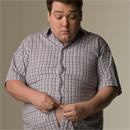Helpful Information About Lap Band Surgery And Adjustable Gastric Band Surgery
The adjustable gastric banding surgeries, including Lap Band surgery, is a form of restrictive weight loss surgery designed for obesity patients with a body mass index (BMI) of 40 or greater or between 35 and 40 for those who have conditions that are known to improve with weight loss. The Swedish adjustable gastric band differs greatly from the Lap-Band because it wasn't designed for use with keyhole laparoscopic surgery. An American company, INAMED Health, designed the BioEnterics LAP-BAND Adjustable Gastric Banding System, which was originally introduced in Europe in 1993.
If someone has a dependency on alcohol or drugs, they won't be eligible for adjustable band surgery. And mentally disabled or emotionally unstable people won't be considered for lap band surgery. However failure of dietary or weight-loss drug therapy for more than one year can make one eligible for the adjustable gastric band procedure.
Inflammatory diseases of the gastrointestinal tract like ulcers, esophagitis or Crohn's disease do not make someone a good candidate for lap band surgery. In general, gastric banding, including the Lap Band procedure and weight loss system, is indicated for people whose Body Mass Index is above 40, or those who are 100 pounds (45 kg) or more over their estimated ideal weight according to the 1983 Metropolitan Life Insurance Tables or those between 30 to 40 with co-morbidities which may improve with weight loss (those are: blood pressure, diabetes, sleep apnea, and arthritis).
During surgery the surgeon uses a specialized needle to avoid damage to the port membrane. Compared to other weight loss surgeries gastric dumping syndrome problems do not occur in lap band surgeries because no intestines are removed or re-routed. When fluid is introduced into the stomach the lap band expands, placing pressure around the outside of the stomach and this decreases the size of the passage in the stomach and restricts the movement of food.
Lap band or gastric band placement, unlike the traditional malabsorptive weight loss surgery (called Roux-en-Y gastric bypass surgery, and the biliopancreatic and duodenal switch) does not cut or remove any part of the digestive system. There are many port designs and they may be placed in various positions based on the preference of the lap band surgeon. Unlike those who have procedures such as Roux -en -y gastric bypass surgery, duodenal switch or biliopancreatic diversion, it's unusual for gastric band patients to experience nutritional deficiencies or malabsorption of any micronutrients.
Many doctors make the first adjustment between six to eight weeks after surgery to allow for the stomach - time to heal. After that the 'fills' are performed as needed. The patient may be prescribed a liquid-only diet, followed by soft foods and then solid foods for a specified length of time. Each surgeon and manufacturer will have their own orders and specifications. And during pregnancy, deflation should be considered if morning sickness is experienced.
The initial weight loss in gastric banding is slower than with Roux-en-y gastric bypass surgery but statistics indicate that over a five year period the weight loss outcome is very similar. The amount of weight lost during the months after surgery will depend on the individual and their personal circumstances, their motivation, and mobility.
Other complications of adjustable gastric band surgery include ulceration and irritated stomach tissue. A common occurrence for lap band patients is regurgitation of the non-acidic swallowed food from the upper pouch, which is commonly known as productive burping. And this is not normal.
Occasionally, the narrow passage into the lower part of the stomach may become blocked by a large portion of food that has not been chewed. Other adjustable gastric band post-surgery complications that can occur are: abdominal pain, loss of strength, infection, fever, hernia, pain, chest pain, incisional infection, incision pain, and even death.
Before you undergo any lap band weight loss surgery or adjustable gastric band procedure, get fully informed by your doctor or lap band or gastric band surgeon. Make sure if you're traveling away from home for surgery to consider the travel time and related travel expenses for both the surgery and follow-up appointments. Please be aware that lap band surgery or adjustable band surgery can have some serious adverse effects and complications. You may want surgery closer to home in the event you need to make numerous trips due to these complications.
For more information on lap band weight loss surgery and lap band surgery complications visit http://www.Lap-Band-Surgery-Info.com a nurse's website offering tips and information on lap band surgery, adjustable gastric band surgery, medical travel for low cost lap band surgery and cost of lap band surgery
- DON'T MISS
- Hoodia – Mysterious Legend or Weight Loss Breakthrough
- One of the Key Secrets to Life-Long Leanness
- Will I get faster results with a Personal Trainer?
- Diet free weight loss: Lose weight the smarter way
- Prevent Health Complications – Reduce Weight!
- You Don’t Have to Stop Eating Out Because You Are On Diet
- Causes of Childhood Obesity are a Growing Concern
- Diet Plans Versus Diet Reality
- Are Your Thoughts About Your Body Holding You Back From Success?
- Phentermine Pills And Weight Loss




